- 1300 761 980
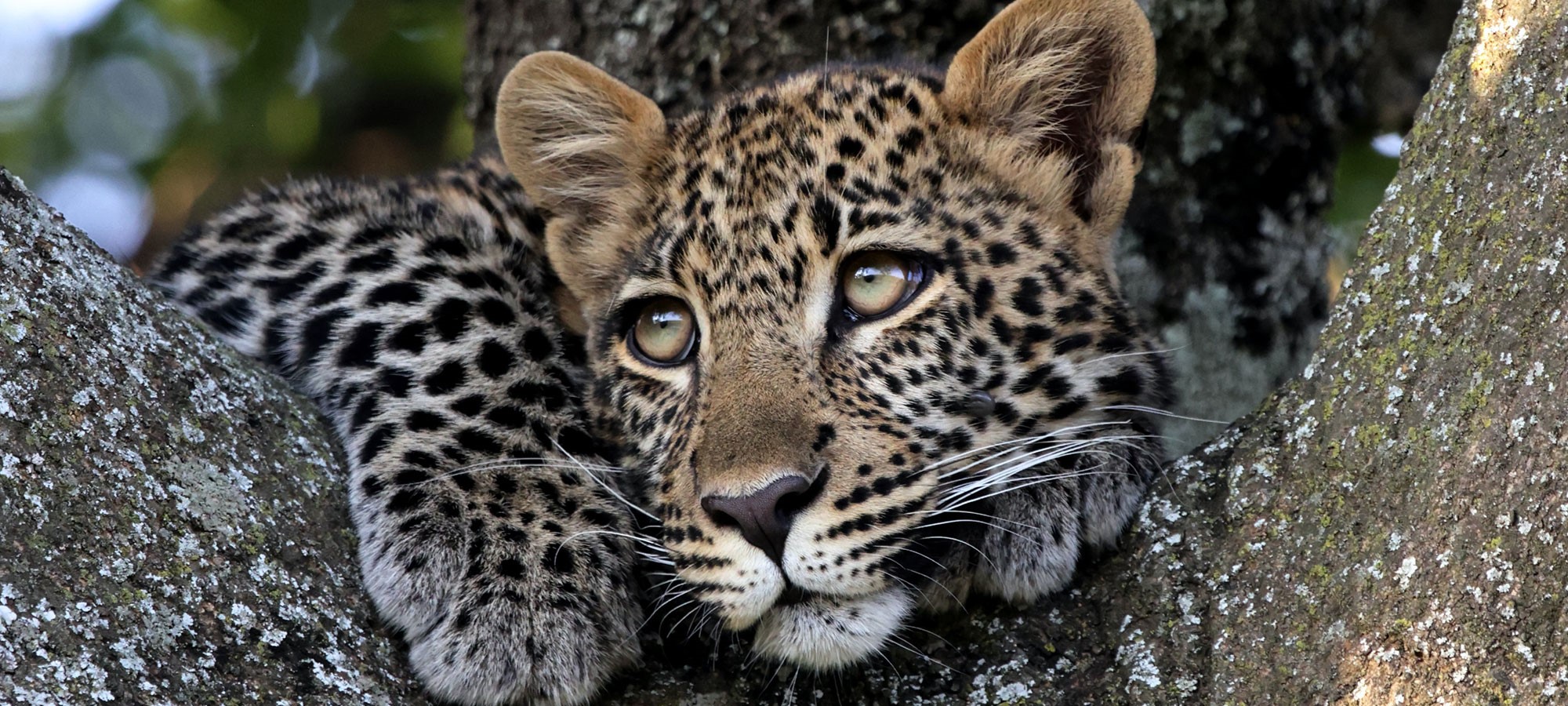
Wonder at the wildlife, relax on superb beaches and enjoy exclusive village life experiences. African Travel Specialists promise extraordinary scenery to inspire, traditional food to stir your appetite and stunning wineries to please your palate. Let us share awesome Africa with you and showcase a range of experiential delights we know you’ll love.
We took our teens to Africa and cherished every moment. From the instant we got off the plane until the day we left we were so well looked after with enormous warmth and hospitality. The kids became immersed in the overall experience and couldn’t wait for the next day’s adventure. A family experience that will stay in our hearts and minds long after our return.
The service from African Travel Specialists, especially all the individuals on the ground, was exceptional. Meeting the mountain gorillas was the most exhilarating moment of my life. Together with the bountiful game, especially the big cats in the great migration in the Masai Mara my whole journey was simply perfect.
We had a brilliant holiday that was meticulously planned and executed thanks to the wealth of knowledge and expertise demonstrated by the African Travel Specialists team (division of The Travel Specialists). We had exceptional service and guidance throughout Africa. We were captivated by the open spaces of the Serengeti, the geological uniqueness of Ngorongoro Crater, and of course the breadth of wildlife. Thank you for delivering an exceptional African experience.
Here are some answers to the questions we receive the most about our services.
If we missed anything, please do not hesitate to contact us. We’ll be happy to help
You should be in possession of a passport valid for at least six months beyond your intended stay in Africa with at least six spare visa pages. If you do not already have a passport, apply for one early.
Australian passport holders currently require visas for Zimbabwe, Zambia (issued on arrival at a fee), Tanzania and Kenya, as well as many Central, West and North African countries.
Africa is a friendly continent. However, as with any city/town, please do not wander around at night in town, be very careful when shopping, and place high value items in a safe if leaving them at your hotel. Precautions like these and a little common sense will mean you can spend more time relaxing on your holiday.
The sooner the better! 9-12 months in advance is ideal. Africa books out extremely quickly, and this will this give you a greater chance of booking the accommodation you want.
You will always leave wishing you spent more time on this splendid continent! As it is a considerable journey to reach Africa, we recommend at least 10 nights to truly make the most of your trip. However, it depends which areas you visit and how many you wish to explore. Considerations include how remote your destination is, whether you are travelling by road or light aircraft and how often you want to stay in one place.
For most trips to Africa, the following vaccinations are recommended: COVID-19, Yellow Fever, Typhoid, Meningitis, Hepatitis A, (maybe Hepatitis B for longer visits), Polio, Diphtheria, Cholera, Tetanus and Malaria. Whilst these vary depending on the countries visited, length of time away and the type of accommodation and transport used, we do recommend that these and your other health needs be discussed with your doctor or specialist travel medical centre. We can advise you on the most suitable health precautions to take in relation to your itinerary, but it is your responsibility to ensure that you have the appropriate vaccinations and documentation.
The choice of the correct camera equipment and film will determine the quality of your photographs on the trip. For good photography of birds and animals, a good SLR camera and telephoto lens is necessary. A zoom lens can be extremely useful on safari and the minimum recommended size is 200mm. Consideration should be given before traveling with any lens bigger than 400 mm as most interesting shots are taken using hand held equipment. The new high-resolution digital cameras are outstanding and give great quality images, especially if you are using a digital camera body, which takes normal camera lenses. Camera bodies like the Canon D60 and 1D are superb. The advantage of digital photography is that one can get instant feedback and adjustments can be made in the field to your techniques to ensure that your photographs are the quality that you would like.
Colour reversal film (slides) will give far better quality than prints. The guides have found that they are getting the best results using Fuji film. Fuji has brought out a good high-speed film that gives good colour with very little grain (less so than any of their competitors). This is especially useful when using a big lens in low light situations. The guides’ personal preference is the slower film (either 50 or 100 ASA) as this gives almost perfect quality for normal light. However, you may consider going to 200 ASA for a larger lens in low lighting conditions. The Fuji 400, we believe is giving great results too. The only disadvantage with the low ASA film is that you need a tripod for the early morning and evening shots.
Important: bring spare film (although it is available in most camps/lodges) and a spare camera battery.
When on safari, a lightweight, versatile wardrobe is most suitable. The weather fluctuates between extremes of heat and cold, meaning layers of clothing are the best option. Please note that bright colours and white are not advised whilst on safari.
Tipping is not compulsory. If, however, you want to tip because you have received good service, we have enclosed a brief guideline to assist you:
Camp, Game Lodge and Specialist Guides
If the guide has done a good job, we recommend US$5 per guest per day for travel to Botswana, Zambia and Zimbabwe and R50 per guest per day for visitors to Namibia and South Africa.
The General Safari Camp / Lodge Staff
Here we recommend about US$3 per guest per day for safari camps in Botswana, Zambia and Zimbabwe and R30 per guest per day for safari camps in Namibia and South Africa. This should be placed in the communal tipping box to be distributed equally amongst all the staff at a later stage.
Hotel Staff
Please allow between R5 and R10 per guest per day for hotel staff, i.e., housekeeping etc.
Porterage
Here we recommend about US$1 per person per movement.
Mokoro Paddlers and Trackers
We recommend that each paddler and/or tracker in Botswana, Zambia and Zimbabwe receive US$3 per guest per day and that camp / lodge trackers in Namibia or South Africa receive R35.00 per guest per day.
Transfer and Touring Driver/Guides
Transfer: R10 per person
Half day tour: R25 per person
Full day tour: R50 per person
Blue Train and Rovos Rail
Cabin attendant R100 per person per journey
Waiter, Dining Car R75 per person per journey
Restaurants / Hotels
10% is customary on meal accounts but only if you are satisfied with the service.
Whilst these establishments offer an incomparable, authentic bush experience, they come with a few considerations. Situated in the wilderness, they are often unfenced, and animals of all sorts can (and do!) wander through the camps. Many of the animals you will see are potentially dangerous, however attacks are quite rare. Nevertheless, this cannot be guaranteed. African Travel Specialists, their staff members, associates, agents or suppliers cannot be held liable for any injuries caused during an incident involving the behaviour of wild animals.
Although this must be said, the camp staff and guides are there to keep you safe. A few tips to keep in mind are:
You should take most of your money in travelers cheques in US Dollars, Pounds or Euro. It is strongly recommended that you carry some US dollars cash in small denominations, as well as credit cards such as Visa or Mastercard.
Suite 2, 1st Floor
261-271 Wattletree Rd
Malvern VIC 3144



For tailor-made itineraries or enquiries…
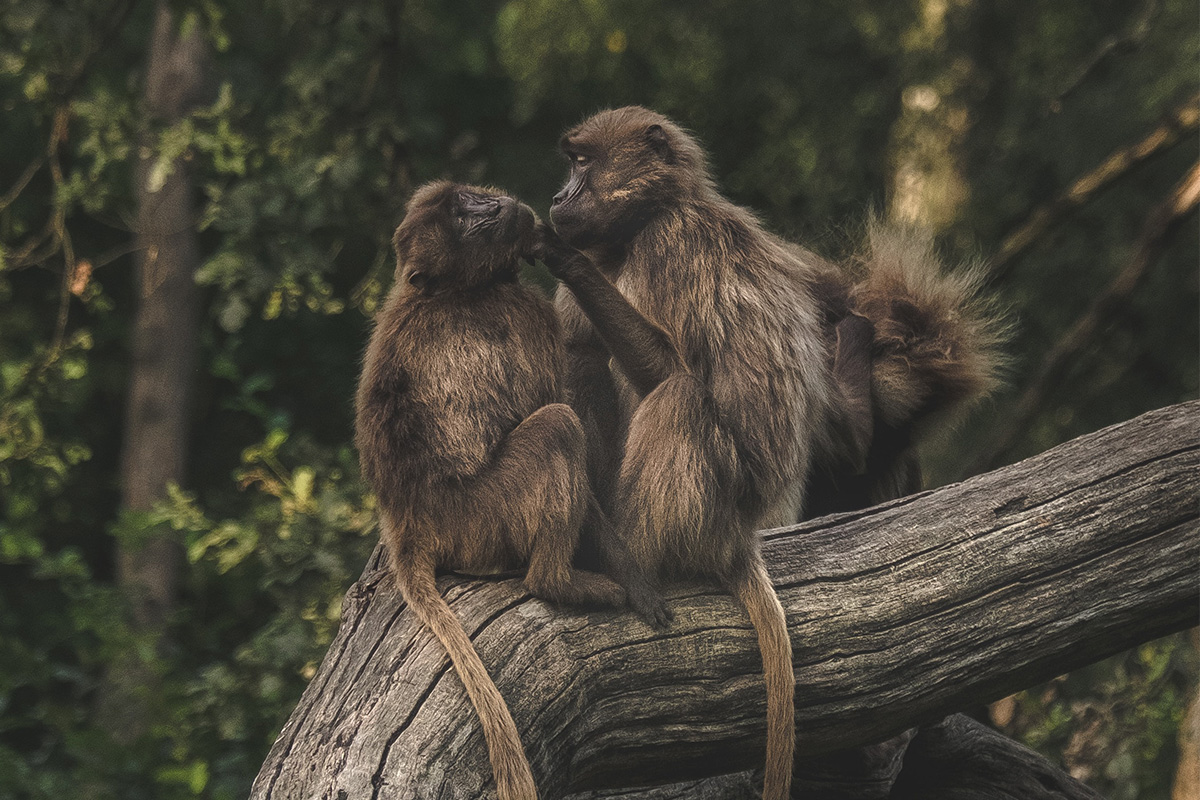
Dubai
Enjoy few showers and cloudless blue skies as you explore Dubai during this mild season. A time for those that love culture, sport and art, Dubai is host to many festivals during this time.
Egypt
Make the most of Egypt as it emerges from its mild winter with warm days and cool evenings. Enjoy exploring the sights and the hustle and bustle in a pleasant climate, without having to face the heat for which Egypt is renowned.
Ethiopia
Experience the warm weather of Ethiopia during January to March and enjoy the period with the lowest rainfall of the year. These are the perfect conditions for sighting wildlife such as ibex, gelada and giraffe. The beginning of the year is also when many Ethiopian festivals are.
Ghana
The best time to visit Ghana is between October and March, when the climate is slightly cooler and less humid, making days more enjoyable. With little rainfall, animals gather around waterholes as riverbeds begin to dry up, making them easier to spot.
Kenya
Despite being the warmest time to visit Kenya and the chance of showers increasing as the wet season approaches, game viewing is still great, prices are cheaper, and reserves are less crowded.
Rwanda
Rwanda’s short dry period offers warm, sunny weather and is ideal for those wanting to sight animals, hike, canoe or enjoy the weather without worry of rainfall.
Senegal
Rainfall is rare and temperatures are mild, making this one of the perfect times to explore all Senegal has to offer.
South Africa
The best season for exploring Cape Town and its surroundings, enjoy warm weather as you experience all the city, the scenic Garden Route and mesmerising Winelands have to offer.
Tanzania
Enjoy warm weather with only occasional rainfall, a small trade off to see the wildebeest calving in the southern Serengeti, a truly unforgettable experience. This is also the perfect season to enjoy a beach holiday or for the adventurous, a trek up Mt. Kilimanjaro!
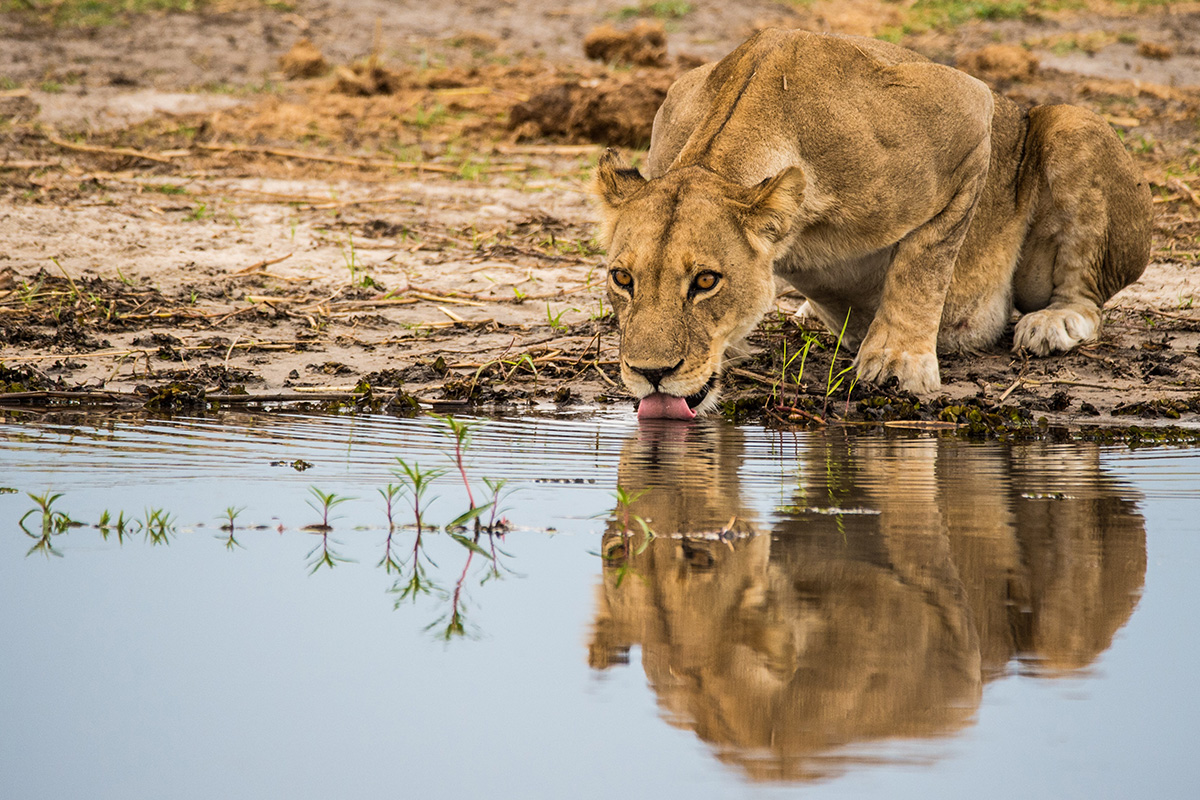
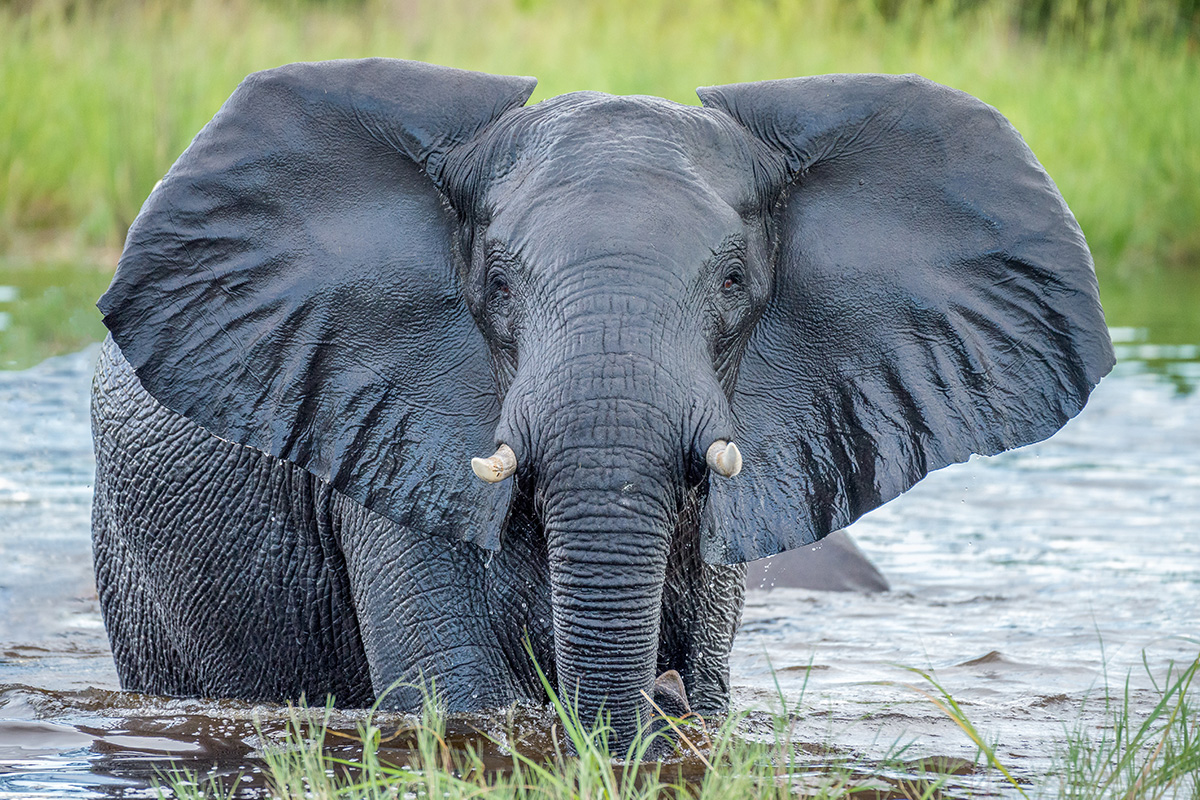
Botswana
The best time to visit Botswana is during the dry season, which lasts from May to September. During this time, you will enjoy warm days and cool evenings, and the water level of the Okavango Delta will be at its highest.
Madagascar
Enjoy your own private island adventure away from the crowds of the peak season, relish the lush green landscapes and almost guaranteed appearances from lemurs and reptiles.
Morocco
Morocco’s spring weather brings a mild climate perfect for many travel plans. Trek the Atlas Mountains, explore the coastline, the endless Sahara or get lost in the hustle and bustle of the city.
Mozambique
The landscape is lush, the days are sunny, and conditions are perfect for snorkelling and diving as Mozambique emerges from the rainy summer. Enjoy sightseeing in the warm weather and in June, the whale watching season begins.
Namibia
Expect mild days and cool nights as Namibia’s winter begins. With little rainfall, animals gather around waterholes as riverbeds begin to dry up, making them easier to spot.
Seychelles
For an idyllic tropical getaway, visit the Seychelles during April when there is little rainfall and breeze. Throughout May and June, the climate is still pleasant however due to the southeast trade winds it is best to stay on the west coast of the island.
South Africa
As the season progresses, the weather cools and rainfall increases in the Cape Town area. However, this creates a lush landscape further north and the perfect conditions for game viewing in places such as Kruger National Park.
Zimbabwe
As Zimbabwe leaves the wet season, rainfall decreases, and a lush landscape emerges. This is the perfect time to see Victoria Falls at a high-water level and enjoy a great safari.
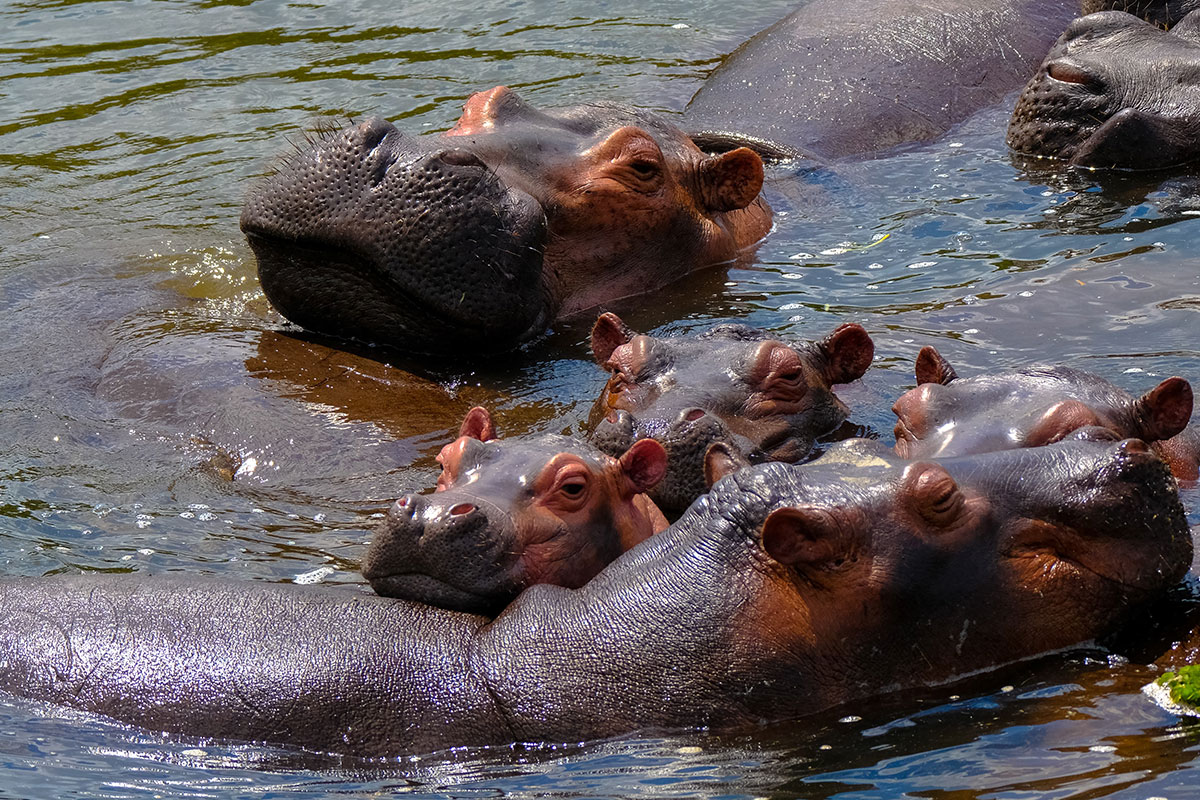
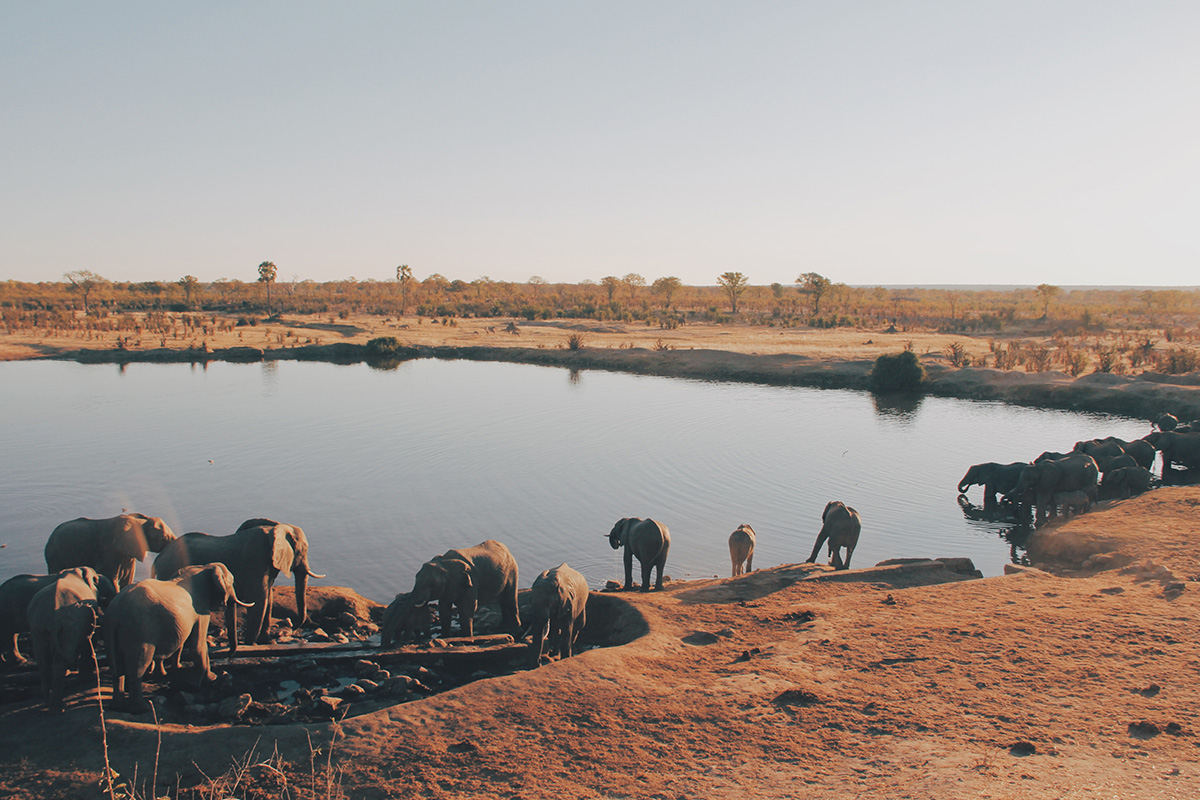
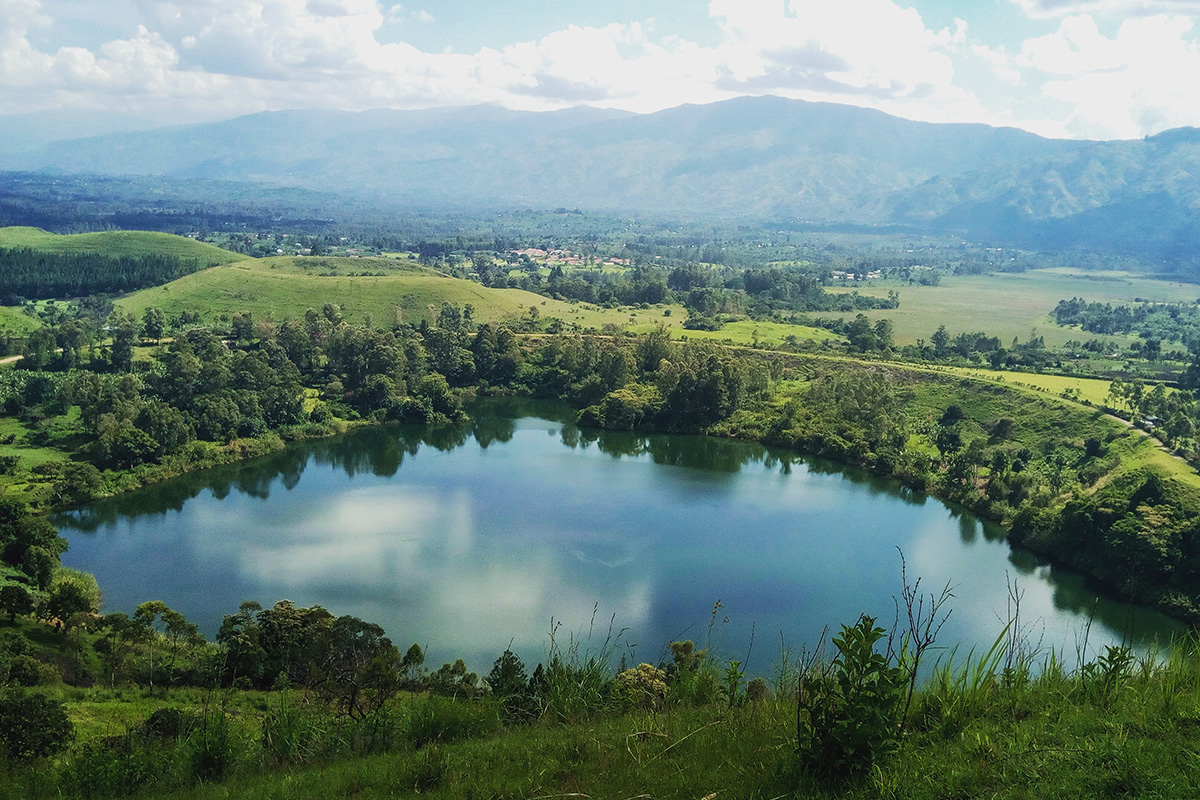
Botswana
The best time to visit Botswana is during the dry season, which lasts from May to September. During this time, you will enjoy warm days and cool evenings, and the water level of the Okavango Delta will be at its highest.
Kenya
Make the most of your trip by visiting during the dry season. Spot wildlife more easily, witness the wildebeest migration and enjoy good weather.
Madagascar
During Madagascar’s winter months many animals hibernate, and many trees shed their leaves, so there are not as many wildlife sightings during this time. However, for lovers of the sea, this is the perfect season for whale spotting as well as snorkelling, as the visibility is great.
Mauritius
With temperatures mild and trade winds picking up, this isn’t the time of year for everyone as it is a little cooler. The northern side of the island is the place to be during this time as it is sheltered from the winds.
Mozambique
July is the peak of the dry season in Mozambique and makes for sunny, warm days. Venture inland for fantastic game viewing or witness the whale migration off the coast.
Namibia
Namibia enters its peak season. Whilst July and August are slightly cooler, September is considered one of the best times to visit Namibia due to the mild weather and low humidity.
Rwanda
The long dry season brings ideal conditions for gorilla trekking and animal sightings in general. During these drier months there is a lesser chance of rainfall, but we still recommend bringing a rain jacket!
South Africa
Although this is Cape Town’s wet season, this is one of the best times to visit the Western Cape and its nearby parks. Seek out the Big Five with fewer crowds and enjoy a more intimate experience. This is also an exciting time to visit as whales can be spotted off the coast.
Tanzania
The weather is cool and dry, and foliage is sparse, making for great viewing conditions. This is an exciting time as the wildebeest migration is taking place. Zanzibar also makes a great addition to any trip and is a diver’s paradise with waters at their most visible.
Uganda
During the dry months, the animals flock to remaining waterholes and the vegetation clears, making wildlife sightings plentiful. This is a fantastic time for gorilla and chimpanzee trekking.
Zambia
By July the ground has dried out from the wet season and temperatures are rising, making it the perfect time for walking safaris. Enjoy river cruises, fishing, game drives and birdwatching.
Zimbabwe
With little rainfall, animals gather around waterholes as riverbeds begin to dry up. This is the perfect time for game drives, with sightings plentiful. For the adventurous, when not on safari, enjoy white water rafting on the Victoria Falls rapids.
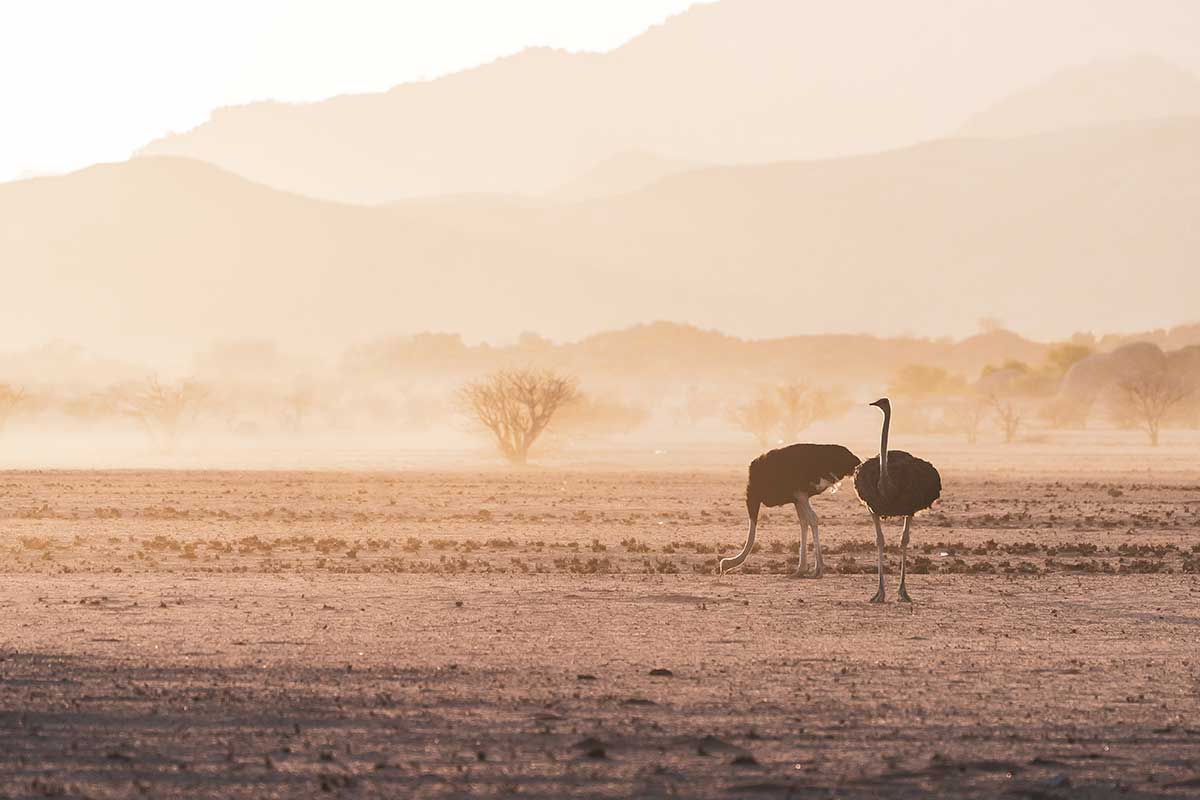
Dubai
The temperature begins to drop but the action in Dubai heats up! A time for those that love culture, sport and art, Dubai is host to many a festival during this time. It is also a perfect time for sightseeing as the weather is cooling down.
Egypt
Make the most of Egypt during its mild winter with warm days and cool evenings. Enjoy exploring the sights and the hustle and bustle of the in a mild climate without having to face the heat for which Egypt is renowned.
Ghana
The best time to visit Ghana is between October and March, when the climate is slightly cooler and less humid, making the days more enjoyable. With little rainfall, animals gather around waterholes as riverbeds begin to dry up, making them easier to spot.
Ethiopia
During Ethiopia’s winter enjoy mild temperatures and low rainfall. This period is a time for celebration, with several festivals occurring. As the heat abates, it is also an ideal time to visit the Danakil Depression and the Bale Mountains, exploring the native flora and fauna of Ethiopia.
Madagascar
From October to December, the island begins to warm up- bringing with it a few showers. However, it is nonetheless well worth a visit as it is the time jacarandas are in full bloom across the island and fossa are most likely to be seen.
Mauritius
October sees very little rainfall and an increase in temperature and humidity as we head into the holiday season. This is an exciting time to be on the island as Diwali and Christmas are celebrated.
Morocco
As temperatures cool, comfortably explore the winding streets of Marrakesh and Fez and venture out to the coastal town of Essaouira. This period is also great for hiking in the Atlas Mountains.
Mozambique
October is one the best months to visit Mozambique, when game viewing is at its peak at the end of the dry season. Expect increasing temperatures as the wet season approaches, with increasing showers towards December.
Namibia
As the dry heat builds in Namibia, the vegetation dies off and the opportunity to sight game increases. Witness the change in landscape as the first rains arrive in December, bringing a flurry of birdlife and an injection of green. Off the coast, this is the best time for whale spotting.
Rwanda
The vibrancy of this mountainous region is brought out by the short rains of October and November. Birdlife is rich during these months, as is the opportunity for photographers to capture this breathtaking landscape.
South Africa
As it begins to heat up in South Africa, wildflowers bloom and rains poor in the Kruger and KwaZulu-Natal. This is a fantastic time to experience all Cape Town has to offer- go whale watching, drive out to the Cederberg Mountains, explore the Winelands and enjoy the Kirstenbosch National Botanical Garden.
Senegal
Balmy warm afternoons and picturesque sunsets, there’s nothing quite like this time of year in Senegal. November and December are among the best months to visit, with rainfall very unlikely.
Seychelles
Despite rainy season approaching, this is a great time to visit as you can witness the critically endangered hawksbill turtles begin to lay their eggs. Whilst October and November are relatively quiet, December is quite busy as it is the Seychelles festive season.
Tanzania
Enjoy warm weather with only occasional rainfall. Experience some incredible game viewing during this season and for the adventurous, this is one of the best times to trek up Mt. Kilimanjaro!
Uganda
Rainfall increases from October and dry savannahs turn green once again. Although considered the low season, there is still plenty to see- migratory birds, newborn animals, and December is a perfect time for gorilla trekking.
Zambia
By October temperatures are rising throughout Zambia, with rains arriving in the latter half of November. Take the opportunity during this time to enjoy the dramatic thunderstorms that roll in and try to sight newborn baby animals on your game drives.